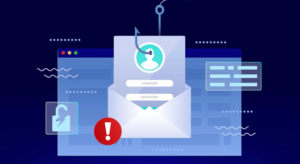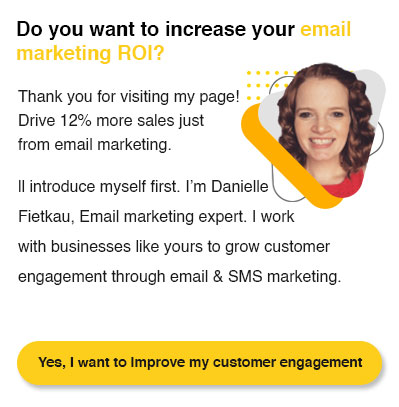There can often be some confusion when it comes to an email marketing agency vs. a consultant. Non-profits and small business owners are often left wondering if they should hire an agency or a consultant.
However, a few things people usually get wrong while dealing with an email marketing agency vs. consultant.
To help you make the best decision, we’ve compiled a comprehensive guide reviewing the pros and cons of hiring an email marketing agency vs. a consultant.
5 Misconceptions About Email Marketing Agency Vs. Consultant
Here are five frequent misunderstandings about an email marketing agency vs. a consultant. Let’s take a brief look at each one.
1. Email marketing agencies are only for big companies, not small ones.
Many email marketing agencies focus on large businesses, but this is not always the case. Many small agencies offer precisely the services you need. Furthermore, some independent consultants work with companies of all sizes, allowing them to provide a more personalized approach to each business.
2. Email marketing consultants are less experienced than agencies.
Email marketing consultants are less experienced than agencies. Agencies typically have teams or departments consisting of specialists who handle specific areas of email marketing, such as design or development, but that doesn’t mean that consultants don’t have any experience at all. A solid consultant can do wonders with your email strategy and is typically far more affordable than a full-service agency.
3. Email marketing agencies require long-term contracts.
Email marketing agencies require long-term contracts. It may not apply to every organization, but it does rely on the project(s) at hand. Consultants usually prefer shorter engagement periods, while some agencies prefer 6 to 12-month contracts to ensure stability in their operations.
4. Agencies are more expensive than consultants.
Email marketing agencies and email marketing consultants often charge for their services in the same way: an hour or a flat fee for each project or service. However, agencies tend to be much more expensive than consultants because they have overhead costs like office space, employee salaries, and benefits. Consultants who work from home can save significant money on overhead expenses, often passing them to their clients at lower rates.
However, there are some exceptions. Some very small agencies charge hourly rates that are comparable to consultants’ hourly rates. In contrast, other larger agencies charge flat fees that may be significantly higher than consultants would charge for the same work.
5. Email marketing consultants can’t do what agencies can do and vice versa
Agencies typically handle multiple clients at once and may be able to bring more human resources to the table when needed. They also have access to many tools that they regularly use to help clients. Individual consultants may also offer the same level of service depending on their experience or resources available to them.
Finally, both can often offer similar services. Both provide expertise in email list building, content creation, design, and A/B testing, and both can typically handle end-to-end email campaigns from concept to implementation and evaluation.
What Are The Differences Between Email Marketing Agency And Consultants?
When it comes to email marketing, you have a lot of options for how to proceed. You can do it by yourself or hire a consultant or agency.
But what are the differences between the Email Marketing Agency Vs. Consultant? Let’s have an eye on what makes each option unique.
Email Marketing Agency
An agency is typically a group of people or businesses that work together on projects. When working with an agency, you get expertise from many different sources, and you benefit from their combined knowledge. Agencies often have longstanding relationships with clients and positive track records and reviews.
Agency services often have more structure than consulting services. You might be given a schedule, a timeline of when things will happen, and more information about how your relationship with the agency will work out. Agencies also have different prices (depending on your business scope). The charges vary depending on the services you need, your project’s time, and the expertise level involved.
Email Marketing Consultant
An email marketing consultant is typically a person who offers expertise. While consulting services tend to cost less than agencies (since they’re operating without overhead costs), they may not provide all the same benefits that you get with an agency. For example, consultants may not work on a strict schedule, and they probably won’t have access to the same kinds of tools and resources that an agency would.
You might hire an email marketing consultant if you:
- Have an established system in place and just need help improving it.
- Want to brush up your skills in email marketing so that you can be more hands-on with future campaigns.
- You are interested in hiring someone for a short-term project (like a specific campaign).
Pros And Cons Of Email Marketing Agency Vs. Consultant
Email marketing agencies vs. consultants both have distinct advantages, but they also have their drawbacks. Let’s skim at the pros and cons of each one:
Pros of Hiring an Email Marketing Agency
- An agency has more resources than a consultant to take on a lot of marketing efforts.
- Agencies are specialists in their field, staying updated on the latest trends and techniques.
- They work with multiple clients, so their experience is more significant than a consultant.
- They have many people working for them so that they can complete projects faster.
Cons of Hiring an Email Marketing Agency
- An agency has less control over the project because they have to delegate tasks to different people.
- The cost of hiring an agency is higher than hiring one person. It’s not as cost-effective for small businesses with limited budgets.
Pros of Hiring an Email Marketing Consultant
- While the consultant concentrates on email marketing, you may focus on other elements of your organization.
- A consultant may be able to help you reach goals for your email marketing campaigns more quickly than if you did it in-house.
- If you have any queries or issues, there is always someone who will listen to them or respond on your company’s behalf.
Cons of Hiring an Email Marketing Consultant
- You need to carefully vet them since not all consultants are equally qualified or experienced.
- Consultants may not have access and knowledge to many tools.
When Should You Hire an Email Marketing Agency or a Consultant?
There are many situations in which you may consider hiring outside help, and they depend a lot on what you need. Let’s see when you should go for Email Marketing Agency Vs. Consultant
1. When Should You Hire an Email Marketing Agency?
Consider hiring an email marketing agency to do your email marketing if:
- You don’t have the time to do your email marketing.
- Your internal team doesn’t have the knowledge to do email correctly.
- You can afford it.
- You need access to tools that you don’t have already.
- You want someone to ensure that all of your emails get sent out on time.
2. When Should You Hire an Email Marketing Consultant?
Consider hiring an email marketing consultant if:
- You don’t have the cost to hire an agency but still want help with some aspect of your email marketing program.
- Your internal team is overloaded, and if you need some extra guidance from a professional, consider hiring an email marketing consultant.
Conclusion
If you are a new startup and have no email marketing background, it is better to go for an Email Marketing Agency. They will take care of everything for your business and will be available any time with their services. However, if you already know about the needs of your business and want to reap the benefits by yourself, then it is better to hire an Email marketing consultant.
Some general misconceptions about email marketing agency vs. consultant are that a consultant requires no past expertise with an agency to be considered as such. They provide independent marketing advice and recommendations to their clients, who can then choose what methods to use for their email marketing campaign.






